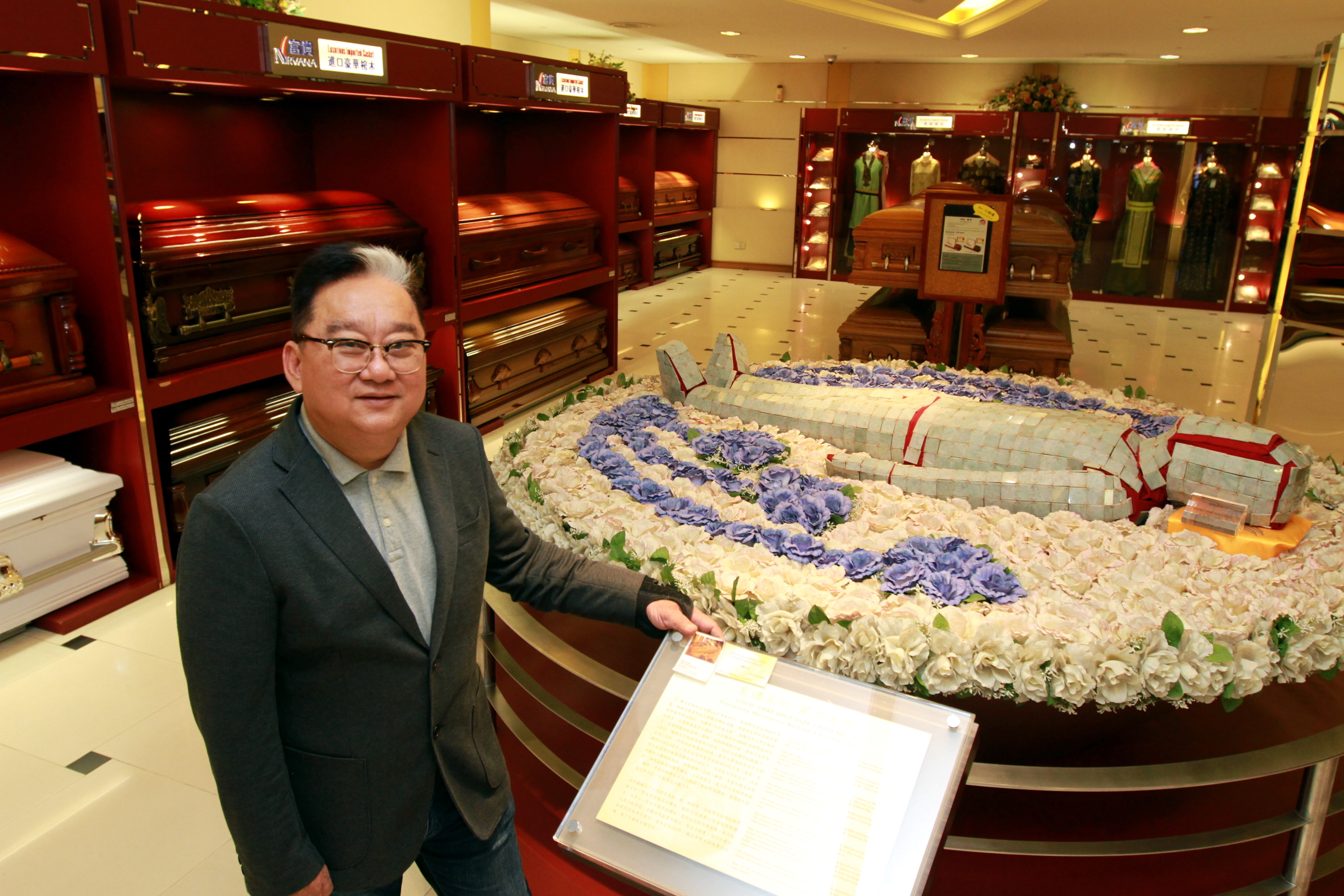The tension is palpable in the lift that Datuk Freddy Chan and I share with a grief-stricken Chinese family at the Nirvana Memorial Center in Sungai Besi, in Kuala Lumpur. The household head – a middle-age man who’s carefully balancing a stack of paraphernalia for the deceased in his hand – is angrily complaining in Cantonese to his relatives, clearly unaware of the presence of two strangers with him in the elevator.
In a bid to diffuse the high-strung scenario, Chan – who is Nirvana’s chief operating officer (Group Public Affairs & Special Project) – calmly asks what’s wrong. Turns out the bereaved family had been reprimanded by security for parking their cars at reserved spots in the basement on that rainy Friday afternoon. When the doors finally open, Chan apologetically escorts our lift companions to their vehicles. He then has a firm word with the aforementioned security guard.
“It can be a very confusing time for the loved ones when somebody passes away. They are angry, but they’re also very sad,” Chan explains as we walk towards the mezzanine floor for our interview. “A big part of what we do here is communication. It’s important that we take good care of their emotions first.”
A veteran at Nirvana (“I’ve worked here for over 20 years, since the very beginning,”), the 64-year-old certainly knows a thing or two about bereavement care. But for the uninitiated, what does one do in the hours following the death of a loved one?
“Just call Nirvana and let us handle everything,” he says with a reassuring smile. “Peace of mind for the family is key.” That genuine sense of care is probably the secret to Nirvana’s success as the largest bereavement care industry in Asia. “We’ll sit with the family members, talk to them and calm them down. Then we will guide them through the funeral arrangements depending on their beliefs,” Chan explains.
On the surface, things might seem simple, bu the different religious groups – and even Chinese clan denominations – often dictate how a funeral is carried out.
“Sometimes, people confuse Taoism for Buddhism, or the other way round. And most Malaysians practise what we call community belief,” Chan says. Nirvana has conducted extensive research on the traditions of various dialects – from Hokkien to Hakka – to deliver the best possible services. “There’s no one way of doing things when it comes to funerals, so it’s important that we establish communication and understanding with the family of the deceased,” he says.
One of the most important aspects to agree upon is management of the deceased’s body. “When handling dead bodies, the word I use is called ‘permission’. Family consent is needed before the morticians lay their hands on the dead body,” Chan says. He cites an example where a man may only want his deceased wife or daughter to be tended by female staff. Chan recently gave a talk on dead body management at the 2016 National Convention on Forensic Medicine at the Faculty of Medicine, UiTM in Sungai Buloh, Selangor.
“Another form of permission, whether you choose to believe it or not, is sought from the dead. Undertakers will ask for permission before they clean the body,” he adds. But that gesture, according to Chan, has as much to do with one’s belief, as preserving the integrity of the deceased.
Integrity is something that Nirvana tries to give families. And it is something that’s often forgotten by guests who attend wakes and funerals.
“Sometimes you get visitors at funerals asking lots of question. They are very concerned about how the person has died,” he says. “Death is a very personal matter. But funerals now have become events of sorts, sadly.” Most families, according to Chan, just want to grieve in private without having to explain the cause of death.
What advice does he have for families coping with the death of a loved one? “All you need to do is to accept it. Let the funeral homes have the headache of handling the bereavement arrangements,” he shares. “Once that’s all over, go home and understand why the deceased has passed away. Chan concludes: “If you think of it, we’re all born to die. But before you die, live gracefully and leave a good legacy behind.”

